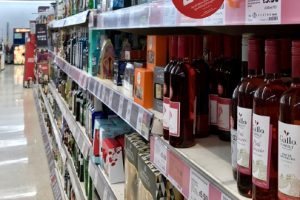GlobalData’s latest report, ‘Coronavirus Case Study: Alcoholic Beverage Innovation’, notes that the scale and impact of the global health crisis has changed consumers’ consumption habit and sentiments towards fast-moving consumer goods brands, which is inevitably influencing the alcoholic beverage industry.
GlobalData notes three emerging trends: New Socialising, New Initiatives, and More Health.
The research notes that home consumption has increased due to the closure of pubs and bars. This trend is likely to continue as consumer concerns about the disease persist, even as more outlets reopen.
Mitsue Konishi, senior innovation analyst at GlobalData, said: “As more people avoid bars and clubs, alcoholic beverage manufacturers need to consider consumers’ ‘New Socializing’ occasions such as home drinking in product development. One key consideration will be catering to premium and budget-friendly alcoholic innovations to allow consumers to capture the bar-quality drinking experience at home. In particular, flavoured alcoholic beverages such as ready-to-drink cocktails are already growing, seeing 12% increase in volume sales globally compared with 2018 and 2019. Premiumization in this category is likely to see opportunity here.”
The study finds that one of the rising concerns among consumers is financial constraints. It shows 13% of millennials globally have stopped buying alcoholic drinks because it is beyond their shopping budget, while 20% say they are buying these products at the lower end of the price range. GlobalData said: “Trending innovation in the affordable price range cannot be ignored to appeal to these consumers.”
In addition, the research reveals that the global health crisis has raised consumers’ concerns about their health – physically and mentally. ‘Better-for-you’ has been a key alcohol drink innovation trend for a few years, but this aspect will become more important than ever among consumers, according to GlobalData.
Konishi added: “Young age groups are concerned about their health more than older groups, and these concerns are reflected in their shopping choices. Alcoholic beverages with positive health attributes such as low calorie and sugar content will appeal to these health-conscious consumers. As mentioned earlier, hard seltzers are trending, as they have these healthier attributes which help to position them as an aspirational drink.
“Furthermore, young consumers also are highly aware of mental wellbeing. For those, alcohol-free alternatives have potential as an aspirational beverage but without the adverse impacts of alcohol. Thus, low or no alcohol alternatives are likely to see even further growth this year.”
 Talking Retail Grocery and product news for independent retailers
Talking Retail Grocery and product news for independent retailers





